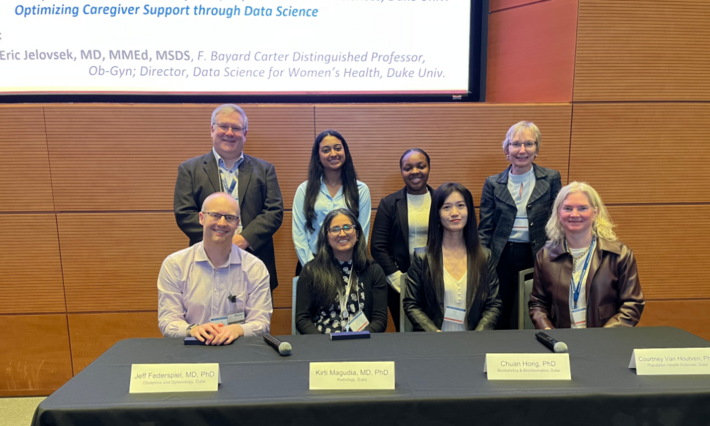When 60-year-old Vennice Roberts visited the emergency room in December 2020, X-rays showed a spot on her lung. Doctors suspected cancer, so she was connected with Nadia Aguilera-Funez, a community-facing navigator with Duke Cancer Institute (DCI).
The spot turned out to be a blood clot caused by COVID-19.
But Aguilera-Funez stayed in touch. She and LaSonia Barnett, DCI community-facing navigator lead, got Roberts approved for a program that provided medication free of charge.
Then they helped her get cancer screenings. She had never had a colonoscopy, and she hadn’t had a mammogram for several years.
The mammogram showed that she had stage 1 breast cancer.
Roberts lost her job, then her health insurance. Since 1989, she had worked as a cook supervisor at a nursing facility. “I loved to cook for the residents, watching people enjoy my meal,” she said.
The team connected Roberts with a program that provides treatment free of charge, and they have been with her every step of the way.
“Together, we wanted to show her there was hope even as things were crumbling down,” Aguilera-Funez said. “We held her by the hand and didn’t let go.”
“All I have to do is call them,” Roberts said. “They have been a blessing in my life.”
Roberts is used to taking care of others, and it has been hard to accept that she can’t return to work because of effects from COVID-19 and a slipped disk in her back.
“Sometimes we have to go on a journey that we don’t want to go on,” Roberts said. “But I’m getting better. And I met a lot of people going through cancer who were worse than I was.”




